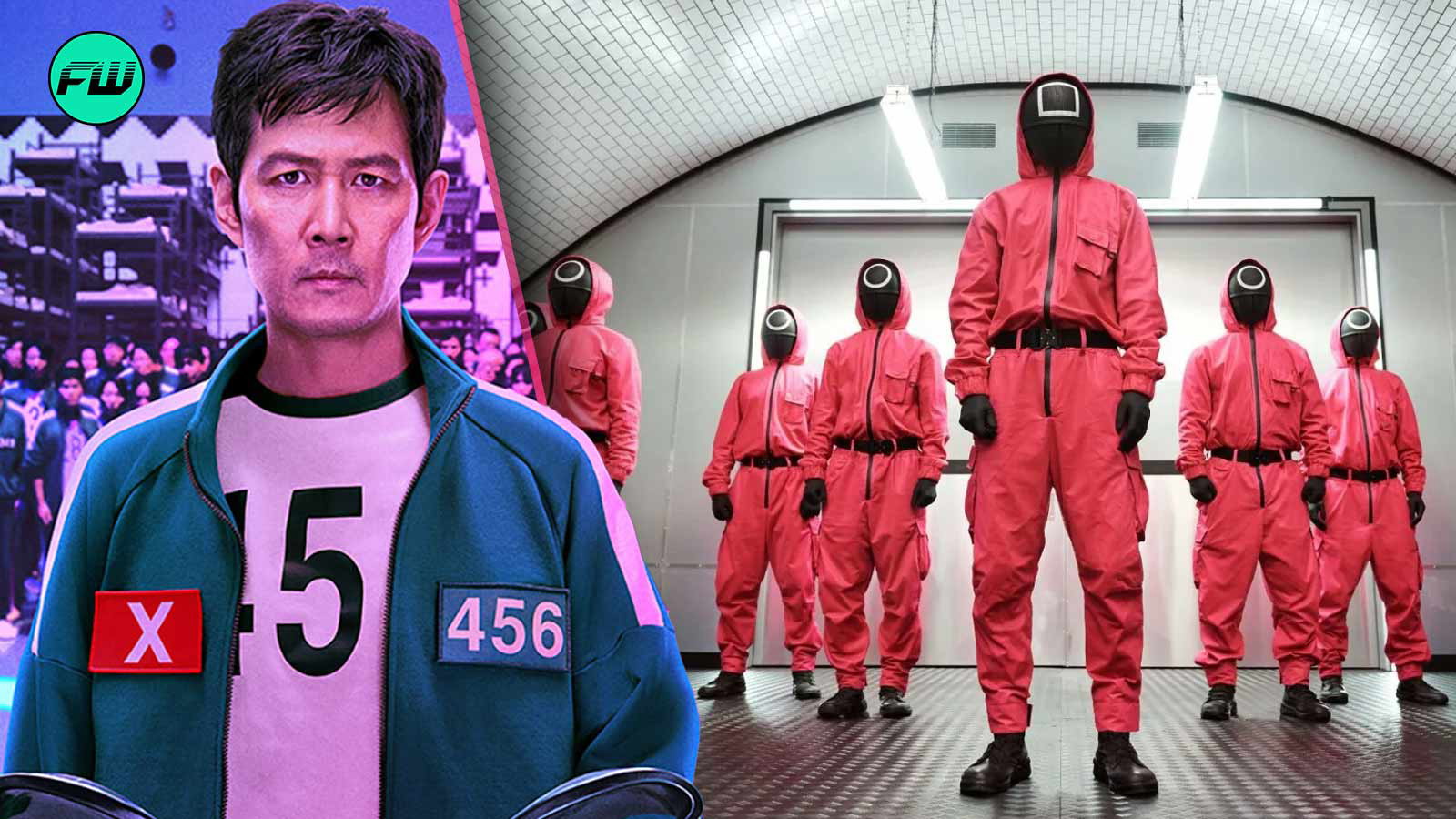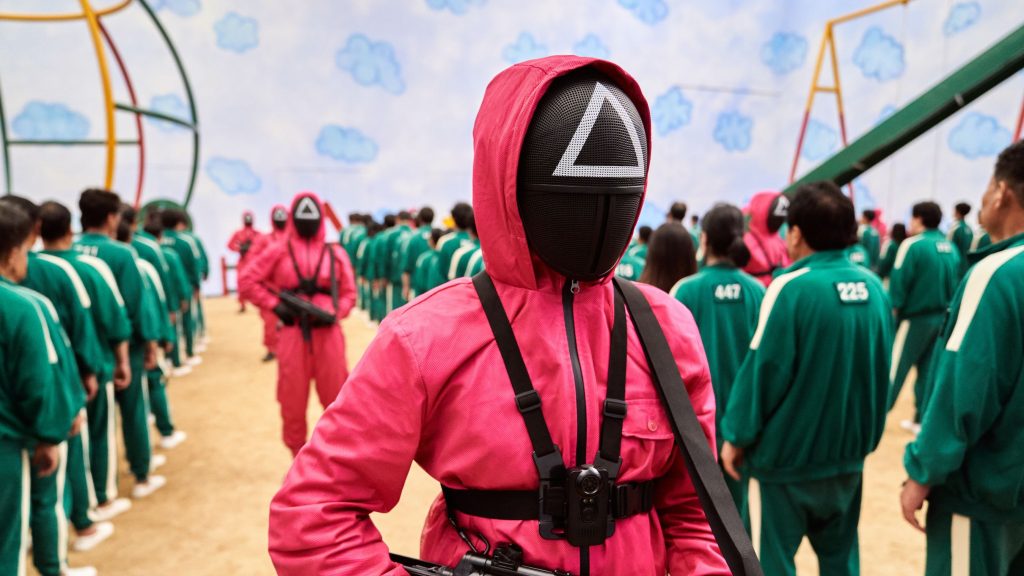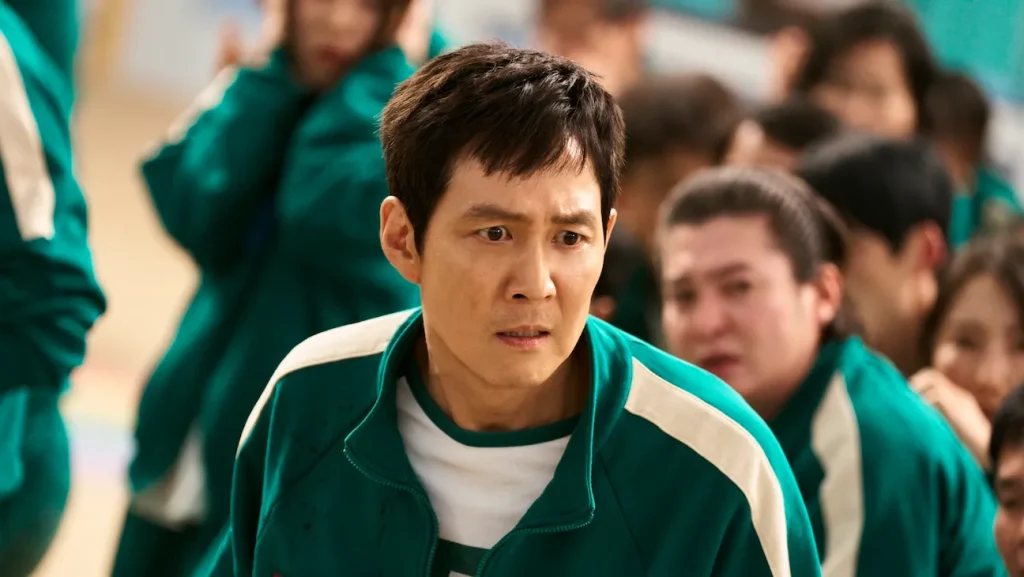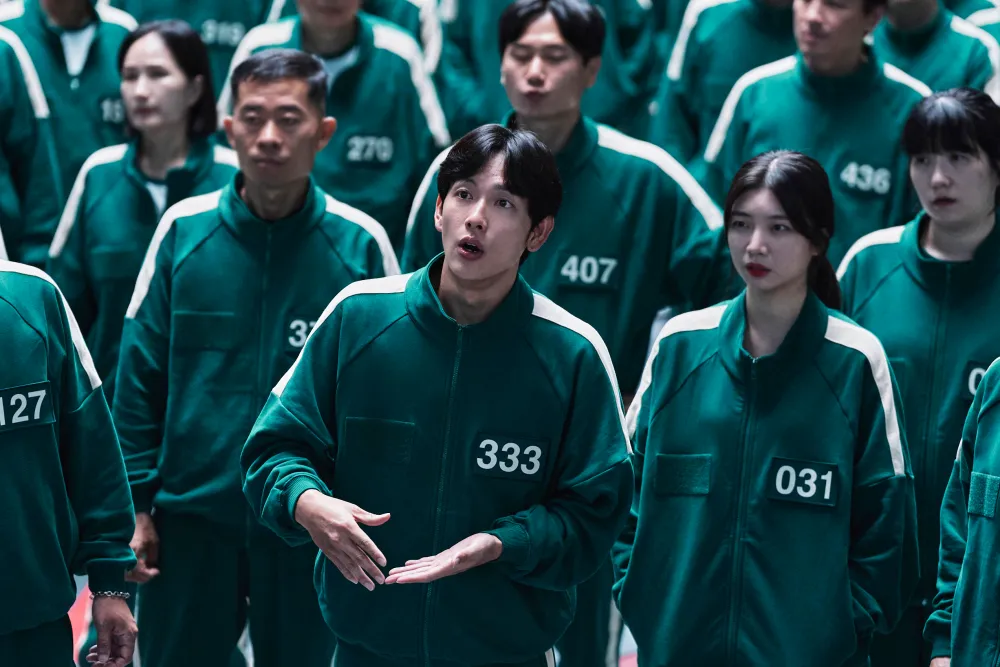Netflix’s follow-up to its most-watched series Squid Game seems to have fallen to the season 2 curse and falls way short of expectations.

The Netflix series Squid Game has finally returned for a second season after two years of hiatus. The South Korean show became a global phenomenon upon release for its thrilling blend of childhood games with bloodshed and its commentary on capitalism and politics in the country. It is Netflix’s most-watched series of all time.
With that distinction comes much pressure, a definite second season, and some fan service. Season 2 of Squid Game can be categorized this way as it falls for the second season curse that most phenomenal shows go through. Here are some reasons why the second season of Squid Game falls short of the original.
Squid Game season 2 tries to be season 1 but fails
 A still from Squid Game | Credits: Netflix
A still from Squid Game | Credits: Netflix
Hwang Dong-hyuk’s Squid Game reportedly took the creator ten years to mount as he tried and failed to get the series greenlit in his home country. As part of Netflix’s global expansion, Squid Game was one of the few shows from South Korea that was greenlit and it seemed to be the best possible decision for the streaming giant.
The thriller series quickly became a global sensation and was the most-watched series of all time on Netflix. The series reportedly beat Bridgerton to clock in the most amount of hours within four weeks of launch. According to Variety, Squid Game had 1.65 billion hours of watch time and remains the most-watched series ahead of Stranger Things 4.
Critically, the show was appreciated by reviewers around the world for its plot, performances, and critique of capitalism. It earned a fresh 95% score on Rotten Tomatoes with many praising the themes explored in the series. The blend of classic childhood games from South Korea and something sinister was loved by fans.
With such a huge reception, and season 1 ending with a cliffhanger, a season 2 was a no-brainer and the follow-up was quickly commissioned. After a two-year wait, the second series was released on December 26 and while it has several elements of the first season, it seems to have come short.
The season begins with LeeJung-jae’s Seong Gi-hun after a two-year break, where he has dedicated his life and earnings to bringing down the Squid Games. He has not been successful in any sense of the word as he still tries to find the recruiter who persuaded him to join the games in the first place. He uses his earnings to hire goons to find him.
Parallelly, the series also follows Wi Ha-joon’s Hwang Jun-ho, the police officer investigating the games whose brother turns out to be the Front Man host of the games. Jun-ho is also trying to convince the department about the existence of the games but is met with skepticism and ridicule.
All the promotional material has established that Gi-hun will be returning to the games and trying to bring it down from the inside. But most reviews have pointed out the fact that it takes too long narratively for him to get there. After two episodes of establishment, Gi-hun reenters the games and the violence can begin but it might be two episodes too late.
The themes and commentary on South Korean (and the global) society also remains but it might not be as deep or novel as it makes it out to be. The show tries to explore the oppression the low-income classes face through the eyes of its participants just like its predecessor but it feels like the same point is being driven by just new people.
While some plot elements like the emphasis on the voting system act as a deeper commentary on democracy and the futility of voting in a power system that is rigged against the general public, it seems to be hammer-headed into the viewers with repetition and more violence that is signature to the series.
In the end, the second season of Squid Game seems to have fallen to the same season 2 curse that many of the binge-able shows have succumbed to in the past.
Lee Jung-jae’s performance as Seong Gi-hun is amazing but one-dimensional
 Lee Jung-jae in Squid Game | Credits: Netflix
Lee Jung-jae in Squid Game | Credits: Netflix
Apart from the commentary and the violence in Squid Game, the most beloved aspect of the series was actor Lee Jung-jae. Playing the lead role of Seong Gi-hun in the show, Jung-jae became the breakout star of the show and achieved global fame. He also received an Emmy award for Outstanding Actor, making history as the first Asian and Korean man to win the coveted prize.
Part of why Gi-hun was so loved and connected to viewers was due to his story. Being mounted in debt and with a daughter, Gi-hun enters the Squid Games in a desperate attempt to regain respect from his daughter’s eyes and clear off his debts. Though most players have similar destitute backstories, Gi-hun is different.
However, the second season sees him more or less as the same, disturbed character with little to no arc. The first season saw him turn from a desperate yet hopeful player to being increasingly traumatized by the deaths in the games. In season 2, fans see him already traumatized and out of his precarious situation but just generally disturbed.
Gi-hun has a motivation and a journey, but the emotional arc seems non-existent.
While Lee Jung-jae’s performance has been received well by viewers in the second season too, it might not have the depth that is enough to secure him another win or a nomination. The series itself lends less to his internal breakdown and instead seems to focus more on the violence and the commentary.
Squid Game season 2 at times feels just like a cash-grab
 A still from Squid Game | Credits: Netflix
A still from Squid Game | Credits: Netflix
It is time to address the elephant in the room. Despite all the new plot elements and characters and more commentary, Squid Game season 2 definitely feels like a set-up to the third and final season that is set to release in 2025. Reduced to seven episodes from the first season’s nine, season 2 feels like less for more wait time.
It is also not surprising to know that creator Hwong Dong-hyuk decided to continue with the series for the money. While the creator did establish unresolved plotlines and a cliffhanger at the end of season 1, the second season seems to build little on them and saves it all for the third and final season.
Dong-hyuk told BBC about the stress he faced during the production of season 1, including losing nine teeth and not being compensated enough for the work he did and the global success Squid Game saw. When asked why he decided to return for season 2, he said,
Money. Even though the first series was such a huge global success, honestly I didn’t make much. So doing the second series will help compensate me for the success of the first one too. And I didn’t fully finish the story.
With the global success of Squid Game nearly netting Netflix a reported figure of $900 million, it is no wonder that Dong-hyuk wanted to cash in on the success of the series he spent ten years developing despite mounting debts. However, this seems to have come at the cost of effective storytelling with the second season feeling like a setup.
Squid Game is available to stream on Netflix.





